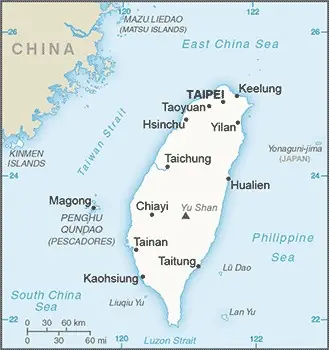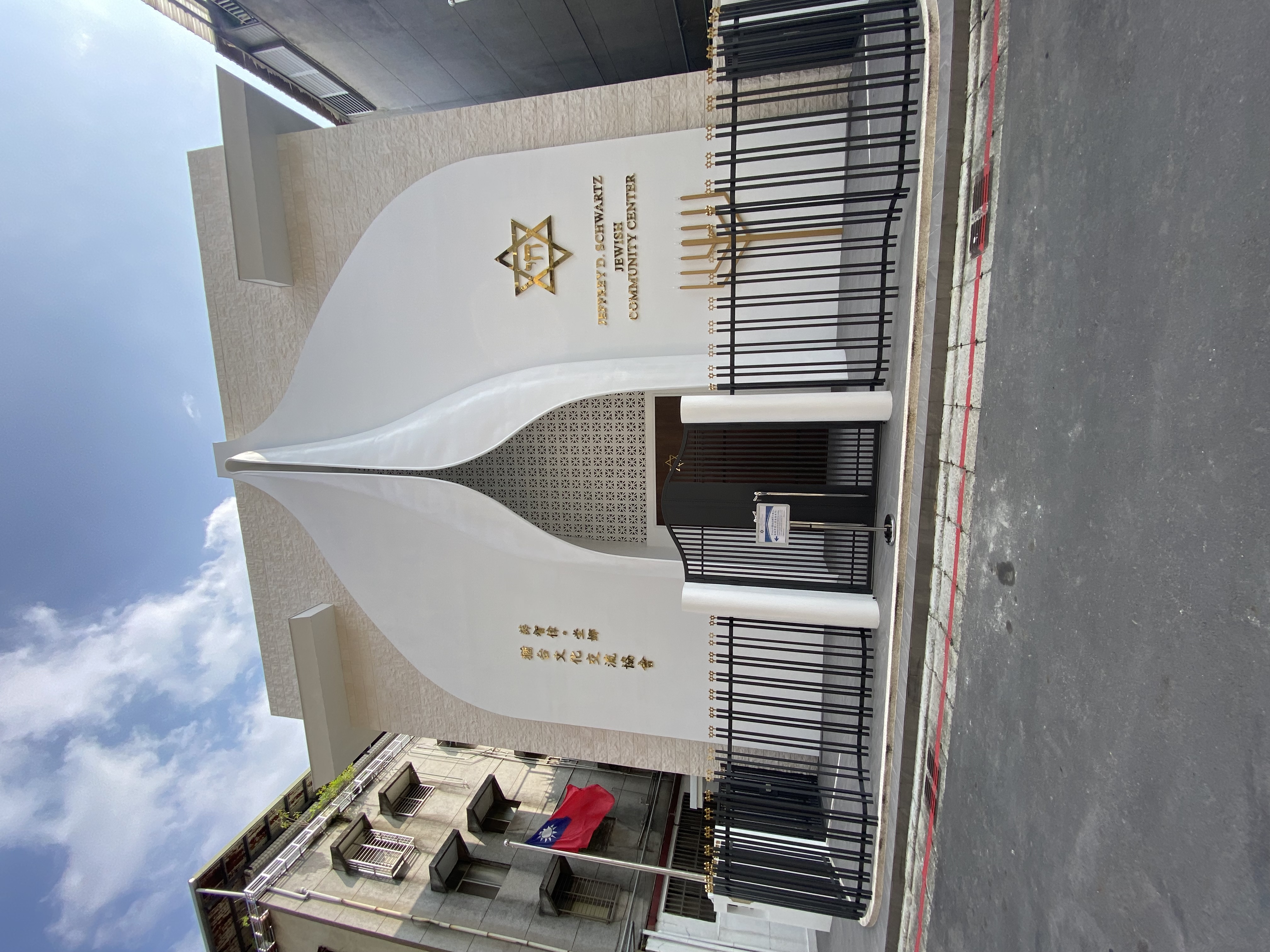Taiwan Virtual Jewish History Tour
By: Ariel Scheib

Despite its small size, the Taiwan Jewish community has remained vibrant for some five decades, ensuring the continuation of Jewish life in this important corner of East Asia. The Jewish community of Taiwan dates back to the 1950s, when Jewish servicemen in the American military were first stationed there. As Taiwan’s industrial and trading capacity grew, Jewish businessmen from the United States, Israel, and Europe, joined Taiwan’s Jewish community. During that period of rapid economic growth, Shabbat and holiday services were held regularly in the U.S. military chapel (open to civilians as well as military personnel), ordinarily officiated over by lay leaders. The nearest rabbi was the U.S. military chaplain based in the Philippines, who would visit Taiwan several times a year.
During the 1960s, an informal Orthodox congregation began to meet at the President Hotel, then the leading business hotel in Taipei. Taiwan was then emerging as a major export center and Jewish buyers of garments, shoes, and other products were constantly visiting the island. A minyan was assured for virtually every service - consisting of both visitors and residents - and the hotel kitchen was taught how to bake challah and other Jewish delicacies.
 |
In the mid-1970s, the Taiwan Jewish Community Center was established in a rented house in the suburban area of Tienmu, where many of the expatriate families resided. In 1975, the community received formal recognition from the government when it was allowed to register as a non-profit organization. Among the founders was Yaacov Liberman, who served as the community president for the first decade. Liberman, who had grown up in China as part of the Russian-Jewish community that had sought refuge there, was the representative in Taiwan of the Eisenberg trading group from Israel. At the community’s peak in the late 1970s and early 1980s, membership included more than 50 families and events were held at the Center several times a week.
In 2002, a Holocaust Museum was opened in Tainan.
The size of the community then began declining due to changes in Taiwan’s economic structure. Some of the industries in which the members were most active, especially garments and footwear, became less competitive in Taiwan as labor costs increased. Many individuals affected by this change relocated to other countries in Asia, causing the community to discontinue the rental of premises to maintain a community center in 2003, as it could no longer afford it.
Regular community events are still organized and religious services for Shabbat and holidays have been held at a Taipei Hotel. After holding the services for many years in the Landis Taipei Hotel, formerly known as the Ritz, the community moved the venue in 2008 to the Sheraton Hotel. Services were officiated by the only rabbi in Taiwan at the time, Dr. E. F. Einhorn. He lived in Taipei for more than 40 years before passing away in 2021 at the age of 103.
Many Jewish visitors to Taipei who are Shomer Shabbat choose to stay at the Sheraton because of its convenience to services. The hotel has also been trained to provide kosher meals of fish cooked in aluminum foil. The numerous Buddhist vegetarian restaurants, many of which offer buffets (some of them quite elaborate), are also a solution for those keeping kosher. While on average only eight to ten congregants turn out for weekly Shabbat services, 60 to 100 people usually fill the synagogue for Rosh Hashanah and Yom Kippur.
 Taipei JCC |
In 2011, Rabbi Shlomi and Racheli Tabib opened the Chabad Taiwan, also known as the Taipei Jewish Center.
During the past decade the Israeli presence in Taiwan has expanded. High-tech companies and individuals with technical skills found many opportunities here, often in cooperation with Taiwanese enterprises. The match of Israeli technology and Taiwanese manufacturing capabilities made for a strong partnership. An example of the Israeli companies active in Taiwan is Orbotech, which provides testing equipment and services to the semiconductor industry.
The growing business potential prompted the Israeli government to establish the Israel Economic & Cultural Office (ISECO) in 1993. It currently has a staff of seven Israeli nationals and nine local employees. Like the trade offices in Taiwan of most other nations, ISECO is similar in function to an embassy. However, since formal diplomatic relations exist with Beijing, the ties with Taiwan must be carried out in an unofficial way.
As of 2019, the Jewish community in Taiwan numbered approximately 100, most residing in Taipei.
In 2021, British Jewish artist Leon Fenster began leading Shabbat services for the Jewish Community group, which typically attract around 60 people. Attendance is larger at events such as Purim parties and Passover seders. The organization has about 200 famillies, some university students, visitors, diplomats and expats. Non-Jews also attend many events.
The community is contemplating buying a building for a synagogue, but it would have to raise money from private donors.
One longtime resident is Don Shapiro, the uncle of former U.S. Ambassador to Israel Dan Shapiro. A former journalist for Time magazine and the New York Times, Shapiro now acts as an unofficial historian. He said he was drawn to Taiwan by the food and stayed for more than 50 years because of the people. “People in Taiwan are some of the nicest people in the world,” he said. “And they really respect their foreign guests.”
Sources: Neil Steinberg, “A down-home davening...In Taiwan,” Jewish World View, (August 9, 2002).
“Jewish Taiwan.”
Cody You, “Taipei’s Jewish Community has Deep Roots,” Taipei Times, (February 14, 2005).
World Jewish Congress.
ISECO.
Don Shapiro, “Introduction to the Taiwan Jewish Community.”
“History of the Jews in Taiwan,” Wikipedia.
Gabe Friedman, “Taiwan’s Jewish community prepares for Passover party — no masks required,” JTA, (March 25, 2021).
Map: CIA World Factbook.
Photo: Jeff Schmaltz, MODIS Rapid Response Team, NASA/GSFC, Public domain via Wikimedia Commons.
JCC - Guermantes Lailari (Taiwan Fellow).



